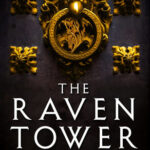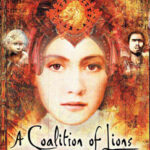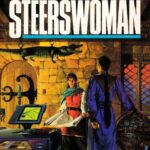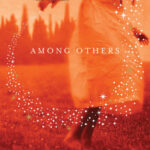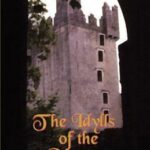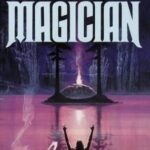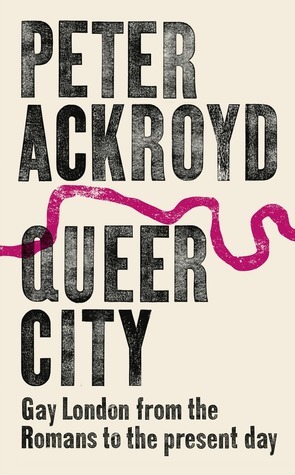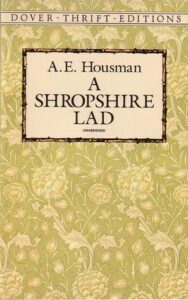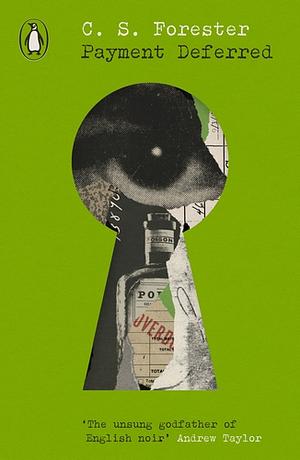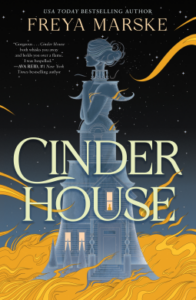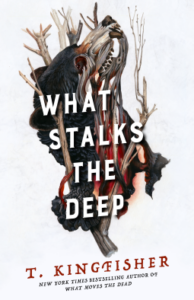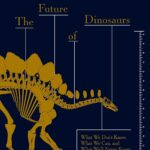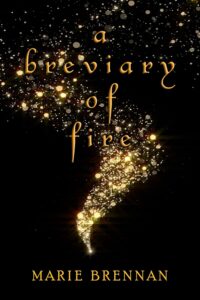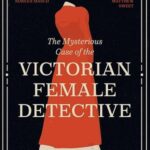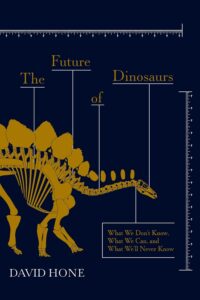This week’s Top Ten Tuesday theme is “books I’d like to reread”, and rereading is a topic I’m always interested in, so it seems like a good place to jump back in after a while of not taking part!
- The Seventh Bride, by T. Kingfisher. I don’t remember this very well, except that I enjoyed it, and I always love Kingfisher’s takes on fairytale retellings. I’m very curious how it compares to my experience of Hemlock & Silver, one of her most recent — that one is so inventive, even though it’s spun out of the story of Snow White.
- The Raven Tower, by Ann Leckie. I liked this more than most people I knew back when it came out, and I’m wondering how it’d sit now; it’s the only novel by Leckie that I haven’t read multiple times. I keep thinking about it, so maybe when I unpack my books post-move it’s time to dig in.
- A Coalition of Lions, by Elizabeth E. Wein. I recently finally managed to get round to my reread of The Winter Prince, and started on this one, but then stuff happened and it went on a backburner. I remember devouring the series, though, so I am curious to get back to it.
- An Unsuitable Heir, by KJ Charles. I’ve been working my way around to a reread of this — the first book by Charles I ever read — for ages, but somehow I’ve never got round to it. It’s actually third in a trilogy, and I’ll probably read them in order this time (though if I recall correctly, it didn’t matter a lot). It was one of the books I read first when starting to get into romance, after requesting the ARC on a bit of a whim, and I’d enjoy a revisit.
- The Steerswoman, by Rosemary Kirstein. I have read this first book of the series twice, paused to read something else, got distracted, and never got onto the remaining existing books. I know the series isn’t finished (at least, I seem to remember that), but I still want to explore more of it. And, uh, remember the details from the first book, because it’s been a while.
- Among Others, by Jo Walton. This was so much The Book of my early twenties that I’m not sure if it’s quite safe to go back to it. It might be weird if it doesn’t resonate as much anymore! Or I might end up remembering why a whole bunch of books got onto my TBR (it’s very much a book about someone who reads), and that might be dangerous for my productivity. But who needs productivity?
- The Winter King, by Bernard Cornwell. I loved this so much as a teenager, and read it several times, but it’s been a long time — I’m not sure if I even reread it when I was studying Arthuriana, because it didn’t really fit in with any of the things I was looking at. I can’t remember if Kay/Cei is even a character at all, for example (I wrote my dissertation on Cei and what the portrayal of him was doing in Arthurian texts of different periods).
- Idylls of the Queen, by Phyllis Ann Karr. I did read this for my dissertation — in fact, it was one of my key texts (along with Cherith Baldry’s Exiled from Camelot) for the modern chapter. I don’t remember a huge amount about it now, but I’m certain I want to reread it. In fact… I wonder if I have the ebook? Hmmm. Otherwise, it’s in one of those boxes somewhere…
- Sailing to Sarantium, by Guy Gavriel Kay. Ominously, the second book was missing when we packed up my books for the move, so I might have to repurchase it — and maybe it might be time to get some matching editions, if they’re actually in print? I scrambled together my collection of GGK’s work on a very tight student budget when I fell in love with The Summer Tree, and none of them match, and some of them are kinda gross-looking. Anyway, I remember being spellbound by this duology, so I’m eager to reread (though fair play, I’m pretty sure my wife didn’t finish it and my mum didn’t like it the way I did, so I don’t know if it’ll hit the same now).
- Magician, by Raymond E. Feist. I don’t know if this can possibly stand up to the warm memories I have of it, but I do at least want to reread the initial three books, Magician, Silverthorn and A Darkness at Sethanon. I loved those books so much, I really did. I don’t think I actually thought much of Feist’s other books in the same world, and certainly never read and reread them in the same way, but those first three… yeah.
There we go, got that back down to ten after briefly going overboard! I’m a great lover of rereading, sometimes just for the comfort of a familiar book, sometimes because you never know what you’ll discover when looking at something with fresh eyes.
NB: I’m not necessarily recommending these — I remember them all fondly, and remember them as being (at least mostly) very good, but who knows what’s happened since I last stepped into these particular pages? The Suck Fairy might have been by.

